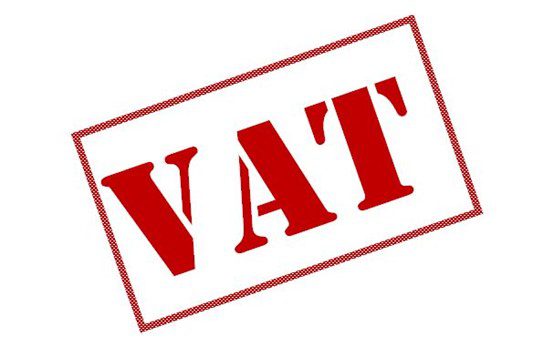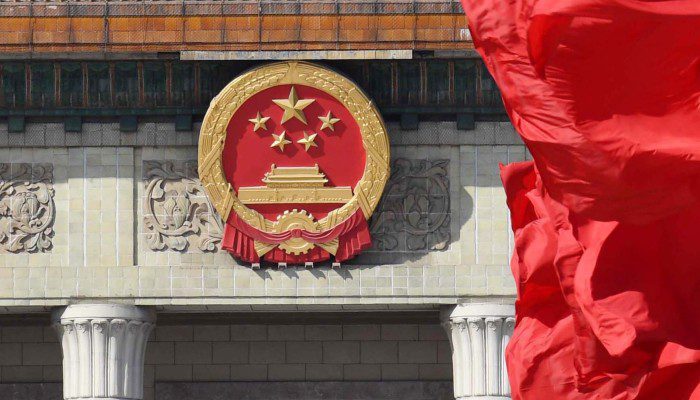China passed its first law on value-added tax (VAT) on December 26, 2024. The VAT Law will come into effect on January 1, 2026, to replace the current Provisional VAT Regulations, which have been in place for three decades.
VAT is the largest tax category in China, accounting for about 38 percent of the national tax revenue in 2023. Enacting the Value-Added Tax Law is a major step in the development of the tax system.
The new legislation contains six chapters and 38 articles, absorbing the current VAT regulations and introducing some adjustments.
In brief
- Formalization of VAT Collection: The law aims to formalize and standardize VAT collection, ensuring a more consistent and transparent tax system
- Retention of Basic Tax Framework: The new law retains the existing VAT framework, avoiding additional tax burdens on taxpayers
- Detailed Implementation Regulations have not been released yet. These regulations will provide further guidance and specifics based on the principles outlined in the VAT Law.
- Implementation Timeline: The law will come into effect on January 1, 2026, allowing businesses time to adapt to the new regulations
Overall, the new VAT Law aims to formalize, standardize, and simplify the VAT system in China, aligning it more closely with international standards while maintaining stability for taxpayers.
In detail
| Current VAT Regulations | VAT Law |
| Cross-border Transactions | |
| Foreign sellers making VAT-able supplies in China typically have VAT withheld by the domestic purchaser. There are a few specific guidelines on the appointment of domestic agents for VAT purposes. | The law clarifies that VAT will be applicable if the seller or the purchaser is in China or if the service is consumed in China. This regulation aligns better with international practices and provides clear guidelines for businesses engaged in cross-border services. |
| Withholding Agents | |
| Foreign sellers making VAT-able supplies in China typically have VAT withheld by the domestic purchaser. There are fewer specific guidelines on the appointment of domestic agents for VAT purposes. | The law stipulates that a domestic purchaser generally acts as a VAT withholding agent for a foreign seller making VAT-able supplies in China unless a domestic agent is appointed. This change will streamline tax collection and reduce the administrative burden on foreign businesses. |
| Scope of Taxable Activities | |
| Goods and Services: VAT applies to the sale of goods, the provision of processing, repair, and replacement services, and the import of goods. Deemed Sales: Certain transactions, including consignment sales, inter-province transfers among branches, capital injections, distribution-in-kind to shareholders, and the free-of-charge service provision, are deemed sales. | Goods and Services: The new law applies VAT to the sale of goods, provision of services, and import of goods, maintaining the broad scope of taxable activities. Deemed Sales: However, the scope of the deemed taxable transactions has been narrowed. Under the new law, consignment sales, inter-province transfers among branches, capital injections, distribution-in-kind to shareholders, and the free-of-charge provision of services are no longer treated as deemed sales. |
| Taxable Periods | |
| Tax Periods: The current VAT regulations specify multiple tax periods, including 1-day, 3-day, 5-day, 10-day, 15-day, and monthly periods. The choice of tax period depends on the taxpayer’s scale and the nature of their business. Filing for Importation of Goods: The current regulations do not specify a filing period for goods import. | Tax Periods: The VAT Law simplifies the tax periods by eliminating the 1-day, 3-day, and 5-day periods. This leaves the 10-day, 15-day, and monthly periods as the primary options. Filing for Importation of Goods: The new law specifies that the filing for the importation of goods should follow the same timeline as other taxable activities, providing clear guidelines for businesses. |
| Mixed Sales | |
| Definition: Under the current VAT regulations, a mixed sale involves both services and goods and is subject to VAT based on the main business activity VAT Rate: The VAT rate applied to a mixed sale is determined by the principal activity of the sale. If the main business is the sale of goods, the VAT rate for goods is applied; if the main business is the provision of services, the VAT rate for services applies. | Definition: The new VAT Law simplifies the definition of mixed sales. It removes the requirement that a mixed sale must involve services and goods. VAT Rate: The new law applies a single VAT rate to mixed sales, but it is no longer required for the transaction to meet the condition of involving both services and goods. |
| Preferential Policies | |
| Small-Scale Taxpayers: Small-scale VAT taxpayers with monthly sales below RMB 100,000 or quarterly sales below RMB 300,000 are exempt from VAT. Reduced Tax Rates: Small-scale VAT taxpayers subject to a 3% tax rate on taxable sales revenue can benefit from a reduced rate of 1%. For pre-paid VAT projects with a 3% pre-tax rate, a 1% pre-tax rate applies. Tax Reductions: Small-scale VAT taxpayers, small and micro profit enterprises, and individual businesses receive a 50% reduction in resource tax (excluding water resource tax), urban maintenance and construction tax, property tax, urban land use tax, stamp duty (excluding securities transaction stamp duty), farmland occupation tax, education surcharge, and local education surcharge. | Retention of Exemptions: The new law retains the VAT exemption for small-scale taxpayers with monthly sales below RMB 100,000 or quarterly sales below RMB 300,000. Clarification of Reduced Rates: The new law continues to offer reduced VAT rates for small-scale taxpayers, maintaining the 1% rate for those previously subject to 3%. Expanded Scope of Reductions: The new law expands the scope of tax reductions to include additional sectors and activities, providing broader relief for small and micro enterprises. Enhanced Support for Innovation: The new law introduces additional preferential policies to support innovation and technological development, including tax incentives for research and development activities. |
| Electronic VAT Invoices (e-fapiao) | |
| Electronic VAT invoices are not mandatory. | The law mandates a nationwide application of electronic VAT invoices, ensuring uniform adoption across all sectors and regions. |
| Specific Sectors and Industries | |
| Special regulations and preferential policies apply to some sectors and industries, such as agricultural products, medical services, imported equipment for scientific research, etc. | The law retains most of the existing exemptions for specific sectors and, in some cases, expands the scope of exemptions to cover additional activities and sectors. |
These changes aim to simplify the VAT system and reduce the administrative burden. Further clarifications on Value-Added Tax Law implementation – The Detailed Implementation Regulations – are pending and will likely address specific procedures for VAT collection and reporting, clarify exemptions and deductions, and provide more guidelines for cross-border transactions and services as well as deemed sales and other special cases.
Invest in China Safely
Contact our experts at contact@sjgrand.cn to stay up to date with the changing regulations, reporting requirements, and accounting standards. Our team will help you achieve tax compliance while improving efficiency and mitigating risks.
Latest Articles:
- New Tax Incentive 2025: China’s Push to Keep Foreign Companies from Walking Away
- Strategic Tax Optimization for Foreign Subsidiaries in China
- The Unmasking: How Chinese Manufacturers Are Challenging Western Luxury Brands
- Why Chinese Suppliers Should Maintain Long-Term Confidence
- Trump’s Tariff Moratorium: A Game of Chicken with Chinese Characteristics







